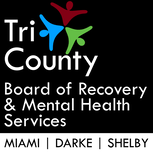Problem Gambling
Gambling is all fun and games, until. For free, confidential help 24/7, call the Ohio Problem Gambling Helpline at 800-589-9966.
|
KNOW THE SIGNS OF PROBLEM GAMBLINGTake the quiz. Know the signs. Have the conversation.
Problem gambling refers to any gambling that goes beyond the normal bounds of gambling for fun, recreation or entertainment.
If you think you or someone you know may have a gambling problem, agencies in the Tri-County Board's service network can administer a brief screening questionnaire, and, if appropriate, refer you to local treatment professionals. Are you playing responsibly?
Reach out
If someone you know is gambling for more than fun, he or she may have a problem. Talking about it can seem scary, but have courage. Here are some ways to begin the conversation:
|
24-Hour Crisis Hotline 800.351.7347
If you or someone you know is in crisis and needs help,
call the Tri-County CRISIS Hotline 800.351.7347 The 24-Hour Crisis Hotline serves residents of Miami, Darke, and Shelby counties in Ohio. In crisis but can't talk? Crisis Text Line Text 4Hope to 741741 Suicide and Crisis Lifeline Call or Text 988, chat at 988lifeline.org |

Tri-County Board of Recovery & Mental Health Services
1280 N. County Road 25A, Suite #1 Troy, OH 45373 937.335.7727 | FAX 937.335.8816 Email us at [email protected] M-F 8:00AM - 4:30PM. Closed federal holidays. Services provided are funded in whole or in part by your continued support of the Tri-County Mental Health Levy.
The Tri-County Board of Recovery and Mental Health Services is an Equal Opportunity Employer |

